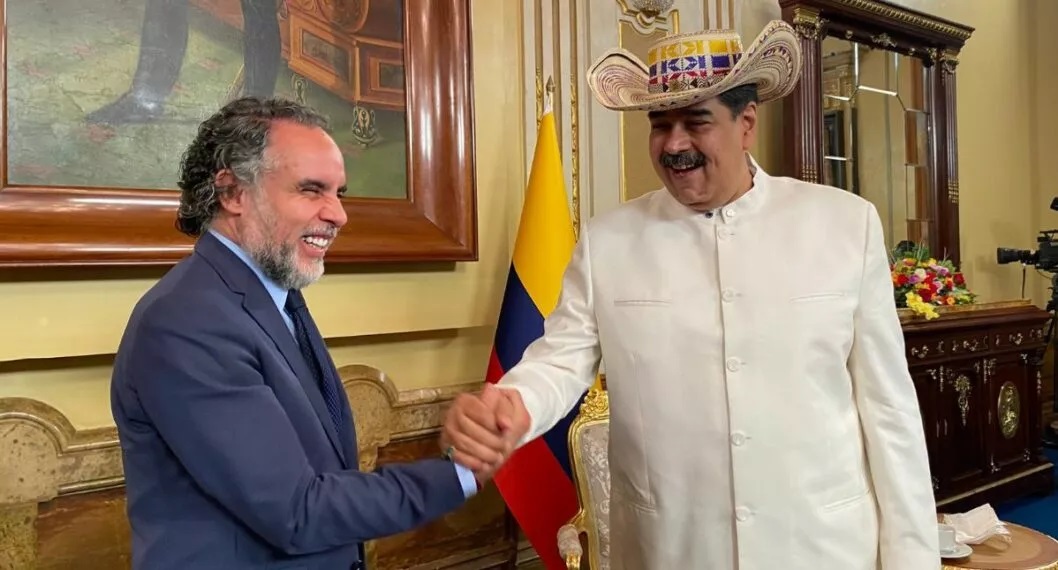The countries of the Americas that do not require Venezuela nationals to apply for a visa are an “exception,” experts say
Mexico began requiring Venezuela nationals to apply for a visa on January 21, as more countries in the region are doing the same.
The visa requirement for Venezuelans is a “growing trend,” according to specialists consulted by Voice of America (VOA).
This article explores which nations in the Americas require visas for Venezuela nationals and which ones do not, the reasons behind the measure, and the opinion of specialists in the matter.
Countries that require a visa for Venezuela nationals
The 2022 global passport ranking compiled by Henley & Partners shows the Venezuelan passport in 40th place, along with Tonga, in a list of 199 countries.
The ranking is based on exclusive data from the International Air Transport Association (IATA) and evaluates national passports on the number of countries and territories that allow entry to their holders without a visa, out of a list of 227.
According to this registry, Venezuela nationals must hold a visa to enter 98 destinations, 13 of them in the Americas and eight in the Caribbean.
According to data from Henley & Partners, the countries and territories in the region that require a visa for Venezuela nationals are:
Bermuda
Canada
Chile
Ecuador
El Salvador
United States
Guatemala
Guyana
Honduras
Falkland Islands
Panama
Peru
Surinam
Anguilla
Montserrat
Trinidad and Tobago
St. Lucia
Puerto Rico
US Virgin Islands
Dominican Republic
Venezuelans also need a visa to travel to Cuba, one of the main allies of the Nicolas Maduro government in the region. The list does not include Mexico.
One of the most recent cases of visa requirements for Venezuela nationals was the Dominican Republic, which set the policy in motion during the December festivities of 2019, leading to long lines at the consulate of the Caribbean country in Caracas.
The Dominican Republic and Mexico are two of only seven destinations that still have an air connection with Venezuela after the restrictions imposed by the pandemic.
For some countries that already require a visa for Venezuela nationals, the situation has also become more complicated, as is the case of the United States.
In 2019, amid tensions with the government of Nicolás Maduro, the US State Department announced the temporary suspension of embassy operations in Caracas, with the consequent suspension of consular services. The decision meant that Venezuelans now must go to a third country, such as Colombia, where the US embassy for Venezuela currently operates, for a visa petition appointment.
In addition, starting in late 2022, foreigners from visa-exempt countries, such as Venezuela national, must register in the European Travel Information and Authorization System (ETIAS) to obtain a travel permit to enter the Schengen area.
Countries that do not require a visa for Venezuela nationals
According to the records of Henley & Partners, the Venezuelan passport provides entry to 129 countries without a visa.
“The countries in the region that do not ask Venezuelans for a visa are an exception. Today, most of the countries in the continent require Venezuela nationals to apply for a visa, with many of them announcing the decision after the Venezuela migration crisis deepened,” said David Smolansky, Commissioner of the OAS Secretary-General for the Crisis of Venezuelan migrants and refugees, during a conversation with VOA
According to Henley & Partners, the countries and territories in the Americas that do not require a visa for Venezuela nationals are:
Colombia
Brazil
Argentina
Belize
Bolivia
Costa Rica
French Guiana
Nicaragua
Paraguay
Uruguay
Mr. Smolansky highlights that Colombia and Brazil do not require visas for Venezuela nationals, having received a significant number of them and taken measures for regularization, such as Colombia’s Temporary Protection Statute for Venezuelan Migrants, announced in February 2021.
“Especially since 2019, there has been a growing trend in countries beginning to require Venezuela nationals to apply for a visa,” commented Ligia Bolívar, associate researcher at the Human Rights Center of the Andrés Bello Catholic University and expert in migrant and refugee issues.
Although the country has improved its position in the ranking since 2021, Venezuela has been falling in the passport ranking since at least 2015, when it was in 30th place.
On a positive note, Mrs. Bolivar highlights the decision of some countries in the region to recognize Venezuelan passports after their expiration date.
In 2019, Venezuela’s interim government led by opposition leader Juan Guaidó, recognized by dozens of countries, extended the validity of Venezuelan passports for another five years after the expiration date printed on the document.
What are the reasons for the visa requirement?
These new requirements take place amid a major flow of migrants from Venezuela. According to figures from the UN Refugee Agency (UNHCR) and the International Organization for Migration (IOM), more than 6 million Venezuelans have fled their country.
An explanation for the decision to impose a visa requirement for Venezuela nationals had Mexico highlighting the more than 1,000 percent increase in the presence of Venezuela nationals “in irregular transit” to a third country, compared to similar periods in the previous five years.
Carlos Lusverti, a researcher at the Human Rights Center of Andrés Bello Catholic University, stresses that the Venezuelan population should receive refugee protection in the countries of destination.
“Although it is true that, according to international law, all countries have the right, and in some cases the obligation, to manage and control their borders (…) and even establish some requirements for entry (…), we understand that in many cases, the set up of these requirements seeks to build a legal barrier to the entry of Venezuela nationals,” Mr. Lusverti said in a conversation with VOA.
Expediting the regularization of Venezuelan migrants and refugees: The challenge for 2022
OAS Commissioner Smolansky states that some 3 million of the 6 million Venezuelans abroad are now in a regular migration status.
“The great challenge this year,” he said, will be “the speed up of the regularization process for the other half, that is, the other three million Venezuelans still in irregular condition.”
In the meantime, Mrs. Bolívar pointed out that, although mechanisms for the regularization of Venezuelan migrants are noteworthy, as in the case of Colombia, lasting solutions are necessary, as well as integration mechanisms so that Venezuelans can be productively incorporated into the economy and society of host countries.
Translated by Jose Rafael Medina




